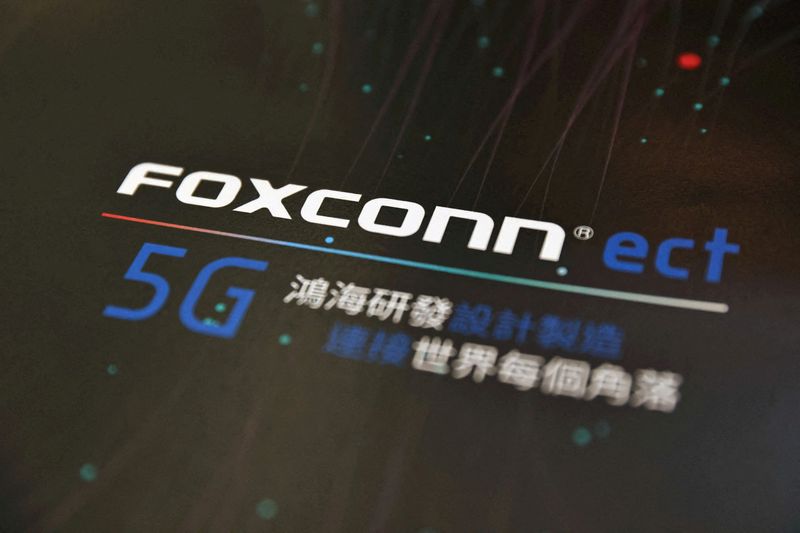(Reuters) -Taiwan's national security officials want to persuade Apple Inc (NASDAQ:AAPL)'s supplier Foxconn to unwind an $800 million investment in Chinese chipmaker Tsinghua Unigroup, the Financial Times reported on Wednesday.
The deal will definitely not go through, the report said, citing a senior Taiwanese government official involved in national security issues. (https://on.ft.com/3A8mzuM)
Taiwan, the world's largest contract electronics maker, has become increasingly cautious about China's ambition to boost its semiconductor sector. It has proposed new laws to prevent what it says is China stealing its chip technology, amid rising concerns in Taipei that Beijing is stepping up its economic espionage.
The island's government prohibits companies from building their most advanced foundries in China to ensure they do not offshore their best technology.
Taiwan faces mounting pressure from China, which considers the democratically governed island its own territory.
Taiwan's cabinet commission has yet to formally review the investments, the FT report on Wednesday quoted an unnamed person who was briefed on the matter as saying, adding that officials from the National Security Council and the Mainland Affairs Council believe the deal needs to be blocked.
Foxconn said in a statement it has submitted reports to Taiwan authorities about the investment and will continue to talk to government officials. It did not elaborate.
Tsinghua Unigroup did not immediately respond to a Reuters request for comment.
It is clear that they have elevated this to the national security level and the prospects are getting dimmed, the FT report cited one person close to the company as saying and added that the deal looks more difficult to pass through with increasing tensions in the Taiwan Strait.

Tensions have escalated in the Taiwan Strait after U.S. House of Representatives Speaker Nancy Pelosi visited the Chinese-claimed self-ruled island last week, a move that Beijing condemned as a threat to peace and stability.
Last month, Foxconn said it was a shareholder in embattled chip conglomerate Tsinghua Unigroup via a $798 million investment by a subsidiary.